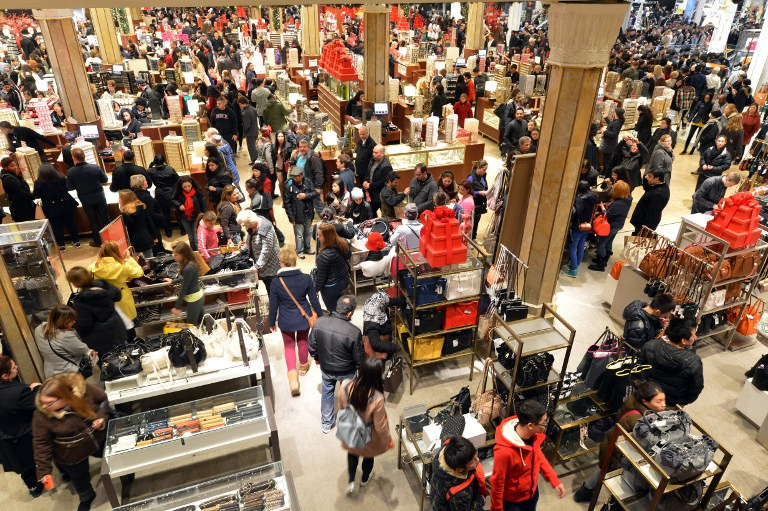Traditionally, the title of Black Friday has been bestowed upon particularly disastrous days in world history: JFK’s 1963 assassination, the 2009 Jakarta bombings, and the recent Brexit vote all happened on a Friday. However, in the past fifty years the phrase has taken on a less tragic meaning.
Whereas in the past Black Fridays were days of national grief and mourning, the day after Thanksgiving is black because retailers go ‘into the black’, begin to make a profit, for the first time in the year. Today, Black Friday is synonymous with frenzied shopping, bargain discounts and undignified Walmart brawls. But I would argue that Black Friday has not lost all of its tragic undertones. Sandwiched between the traditional celebrations of Thanksgiving and Christmas, it represents the very worst of our consumerist culture.
In the build-up to the festive season, parents are often quick to remind children that the upcoming holidays have moral undertones: thanksgiving isn’t all about the food, but family. Although we live in an increasingly materialistic world, nobody wants their family to forget about the day-to-day importance of familial love, selflessness and gratitude. So why is it that whenever Black Friday rolls around these hefty moral considerations are so often thrown out the window to make space for a new bargain flat-screen TV?
Keen not to be outdone by their American counterparts Walmart, Target, and Sears, UK retailers will this Friday eagerly welcome in the general public for a day of discounts, violence, and anarchy. This may seem melodramatic until you discover the website Black Friday Death Count, which tallies up the havoc wrought by Black Friday. The figures are shocking: seven deaths and 98 newsworthy injuries since 2008, including the fatal trampling of a Wal-Mart employee by a wild mob of frenzied shoppers.
Since 2014, a single day has not been enough for many major American retailers. Walmart, Target and Sears, all intent on squeezing every last penny and punch out of the general public, have taken to opening their doors twelve hours earlier than usual at 6pm on Thanksgiving Thursday. Rather than sitting down with their loved ones for a traditional meal and reflecting on their gratitude, many families will eschew the game of family football and instead head to their local mall to get a good position in the queue. Of course, the greatest tragedy of Black Friday is the rampant consumerism and waste it promotes. Nothing is sacred to our materialistic greed, nothing is valuable. In the wasteful creed of the Black Friday consumer, this year’s fashion is next year’s landfill and today’s iPhone has nothing on tomorrow’s Samsung.
Amid this bleak outlook there is some good news. While Black Friday in the US continues to grow rampantly, the UK has not taken up the tradition quite so readily. Our traditionally reserved attitude tends to prevent us from brawling and battling in the middle of Tesco’s over first choice of bargain toothpaste. There has also been more organised resistance to the idea. The popular campaign Buy Nothing Day challenges people to a 24-hour moratorium on consuming as a detox from our materialistic holiday habits.
This November 25, let’s not allow ourselves to be taken in by the tempting deals. We should see through Black Friday for the frivolous American gimmick that it is.



